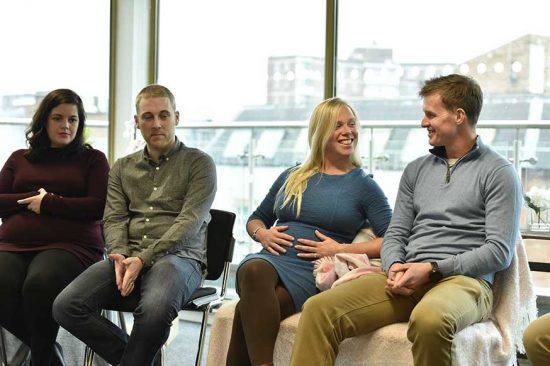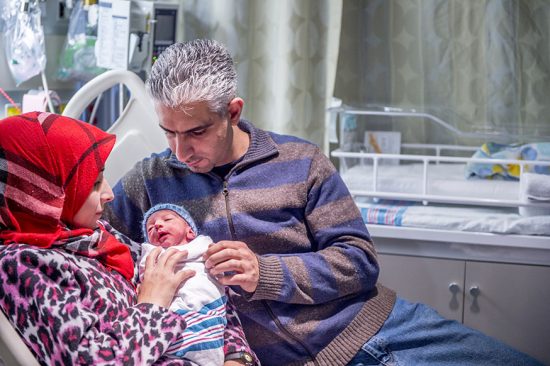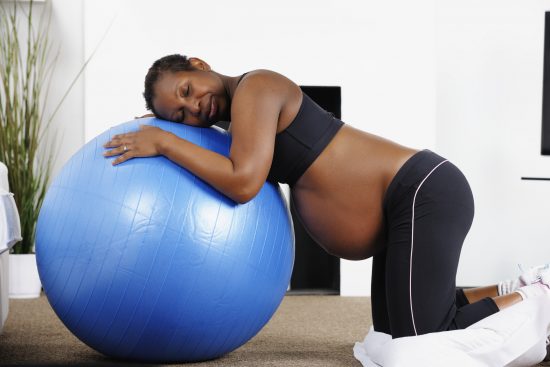You know your baby has to come out out after nine months but how and when? Read our list to help you feel as confident and calm as you can be about having a baby
For many mums-to-be, alongside the buzz of finding out you’re pregnant and the high of expecting a little human, there’s one slight fly in the ointment. Just how is this baby going to get out? As the due date looms, the worry might increase.
You’d be hard pressed to find a group of expectant mums in their third trimester whose conversation didn’t revolve around labour. Our list can help you prepare so you’re going in fully armed!
Find out more about different options for having your baby here
You don’t have to have your baby the way you might think is ‘expected’ – in a maternity ward at your local hospital. It’s your baby and your body, and if you’re a low risk pregnancy then you might have the option of a home birth, a birthing unit or a birthing pool.
It’s not set in stone either – if you decide further down the line that you’d like to try a different option, you can change your mind right up to the end of your pregnancy.
Take some time to look into what options are available in your area. The closest hospital is usually the best option, so you can get there quickly for antenatal appointments and the birth itself. But if there are several hospitals close to where you live, you should be able to choose which one suits you best.

Similarly, many mums-to-be would love to see into the future to know how it’s going to happen. Without a crystal ball, the best you can do is be as prepared as possible.
If there’s one particular aspect you’re worried about – like the pain or where it’s going to happen – address it by arming yourself with knowledge. Read up and talk about different methods of pain relief with your NCT teacher or midwife, and ask if you can visit the maternity ward or birthing pool where you plan to have your baby beforehand.
Attending NCT classes is a really helpful way of talking through your concerns, and maybe hearing what your partner is worried about, too. Working on a birth plan and learning about pain relief can also really help allay your worries.
As with any major unknown experience that’s to a great extent out of your control, it’s natural to feel nervous. Many mums say breathing techniques or approaching the birth with a different mindset, really helped during childbirth.
Lou Jones, mum to Holly, Sam and George and from Twickenham, Hounslow & District NCT branch says: ‘I realised that the way I perceived labour could potentially have a positive impact, and it did! I read a couple of hypnobirthing books that emphasised the importance of thinking about contractions as ‘sensations’ rather than ‘pain,’ and seeing each contraction as bringing you one step closer to meeting your baby.’
If you think it might work for you, give yourself plenty of time to find out about breathing techniques or hypnobirthing and maybe do some classes. It might help you feel more confident that you’ve got a way of coping with what’s coming up.

It’s the question every first-time mum wants to know – how do you know when you’re going into labour? The answer is, you’ll know!
You might feel very tired in the days before. Then, before you start labour, you could have a ‘show,’ where the mucus plug sealing the cervix comes away.
One NCT mum saw she had a show during a toilet break at the hairdresser, and instinctively knew she had to go home and rest!
Not every woman’s waters break when labour begins, in fact most don’t. The signs might just be regular, increasing low tummy pain, like bad period pains, and lower back pain.
NCT antenatal teacher and midwife Dot Parry says: ‘Unfortunately, there is no definite formula and no set time frame. If you think something is happening, ring your midwife and have a chat – it’s their job so don’t feel nervous, even if it’s not your due date.’

Having a birth partner with you in labour is a natural choice for many mums-to-be. Whether it’s a partner, parent or friend, having a loved one at your side can reduce the time you’re in labour and make the experience better.
Some mums choose to have doulas with them too, who can help support you both through the whole process. Remember having a baby is one of the most intimate moments of your life, and you shouldn’t feel pressured to have anyone there who you don’t want to.
Make sure your birth partner can be available at short notice for when you go into labour, even if it happens a few weeks early or a week or two late.
Find out from the hospital what the options are for your birth partner after the birth – how long they’re allowed to stay and whether there is a bed or reclining chair for them. Pack some snacks and clothes in your hospital bag for both of you, too.
Read up here on the different stages of labour and tips for birth partners
Bridget Davies, mum of Ruby and member of Nottingham NCT branch, remembers panicking when she went into labour and almost wishing that she could turn the clock back nine months and make the decision never to have kids. Rather that than facing the next few hours!
The thing is, from natural birth to c-sections, there’s no easy, trouble-free way for your baby to be born. But you’d be hard pressed to find any mum who said that holding their baby afterwards wasn’t worth every second. Especially given how many of them go on to do it again.
On a practical level, there are lots of options, which you’ll discuss in your NCT classes, to help you cope with pain during labour. On the day, you might not find you need or want them, but it’s worth researching all the options and putting in your birth plan what you would or would not want to have.

The image of a woman lying on her back on a bed might be how childbirth is often portrayed. But chances are that the last thing you’ll feel like doing when you go into labour is keeping still.
Melanie Bright, mum to Sienna and Joe from West Cumbria NCT branch, says: ‘My mother-in-law was coming to help look after my eldest when I had my son, and my husband thought I was mad for making up the bed for her when I started going into labour! But I needed to be moving about, the last thing I wanted was to sit around.’
In fact, staying active works wonders throughout labour. It can help keep you distracted to begin with, and then encourage things to move along as labour progresses. And staying upright means that gravity helps push baby down. Squatting or kneeling is actually a much more natural position for your baby to come out than lying down.
Don’t feel self-conscious during labour – hospital staff have seen it all before
Many women feel self-conscious about the walk from changing room to swimming pool in their costume. So the thought of being naked in front of total strangers makes them cringe.
Similarly, for mums who wouldn’t even dream of having their partner in the bathroom when they go to the toilet, imagining what they’re going to see when you’re in labour can be mortifying.
But remember that the midwives and doctors have seen countless mums giving birth before, and they’re certainly not going to be thinking about the dimensions of your bottom!
As for your partner, have a word beforehand with them about how much you’re comfortable with them seeing.
And yes, it might be that when you’re pushing in labour, a poo might come out too. But who cares? You certainly won’t and neither will anyone else there. The midwives will just discretely wipe it away – you probably won’t even know it happened.
Labour isn’t the time to be polite or stand on ceremony. You may not be the kind of person who in day to day life would shout, swear, demand attention or tell people to go away. But labour is a bit like your body taking over and you just have to go with it!
Do what you feel your body needs to do – whether that’s moan, scream or just not talk and focus on what’s happening. Techniques like hypnobirthing might help you realise that your body has everything in hand and you should just go along with it.
Lou Jones agrees: ‘It was helpful to understand that giving birth is a natural bodily function, and I needed to trust what my body was capable of.’

At the end of the day – and though it’s easier said than done – don’t try not to focus all your attention on the labour itself.
One mum-of-two from Haringey NCT branch says: ‘I wish I’d worried less about the birth and done more research into things like how to work out if the baby is latching on properly, and whether it’s crying because it’s hungry or tired.
‘Because when you’re back home, as wonderful as it is, you’re on your own.’
Labour only lasts for a very short amount of time in the big scheme of things, while caring for a brand new human being will go on for a lifetime. And reading up about life with a newborn will also distract you from all those questions and worries running through your head about the birth!
If you’re worried about what will happen during labour and want to know how to get prepare for it, check out our articles on everything from pain relief to birth plans here